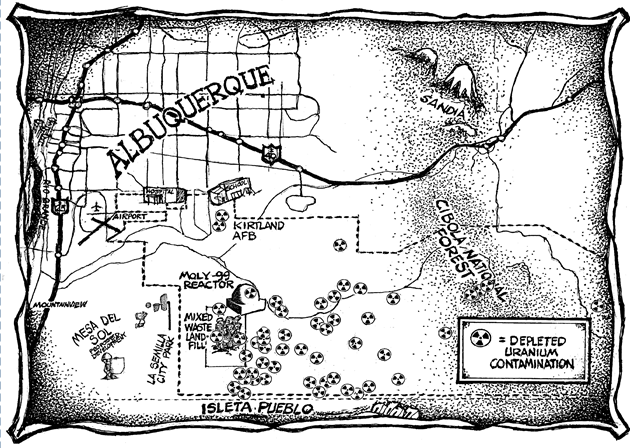
International Institute for Indigenous Resource Management, Inc. (IIIRM)
International Institute for Indigenous Resource Management, Inc. (IIIRM) is one of 39 environmental and peace organizations that won a landmark lawsuit against the U.S Department of Energy for failure to follow-through on adequate environmental cleanup during its 50+ years of nuclear weapons research, testing, and production. Part of this settlement was the establishment of the MTA Fund (Citizens’ Monitoring and Technical Assessment Fund), which provided $6.25 million for tribes and non-profit organizations to assess and conduct independent technical and scientific studies regarding the multitude of technical, ecological, and health issues surrounding the nation’s nuclear weapons complex.
Clark University was chosen by the non-profit peace and environmental groups as the conservator of these reports to ensure they remain available to the public in perpetuity. The unconventional election of university as conservator is an innovative example, particularly within the era of Web 1.0, of higher education as protector and provider of information through wide dissemination.
The research and reports available in this series were conducted by the International Institute for Indigenous Resource Management, Inc. with their allocated portion of the MTA fund.
If you have any questions or concerns please contact us at digitalrepository@clarku.edu.
-

Taking Control: Opportunities for and Impediments to the Use of Socio-Cultural Controls for Long-Term Stewardship of U.S. Department of Energy Legacy Waste Sites
International Institute for Indigenous Resource Management, Inc. (IIIRM)
The Institute brought together 25 indigenous and other storytellers, songwriters, poets, and dancers with historians and other representatives from a variety of tribal and disadvantaged communities in proximity to DOE legacy waste sites, along with policy makers from various public agencies with an interest in addressing environmental problems through the humanities. Roundtable participants were briefed on the types and hazards of persistent contamination from the DOE legacy sites, future hazards for human health and the environment, and the limitations of standard institutional controls. In facilitated discussions, roundtable participants set out the potential benefits of and strategies for encouraging creative/historical discourses that carry basic information about the histories of the sites, and risks of environmental contamination.
This research was completed money allocated during Round 5 of the Citizens’ Monitoring and Technical Assessment Fund (MTA Fund). Clark University was named conservator of these works.
If you have any questions or concerns please contact us at digitalrepository@clarku.edu
-

Identifying the Burdens and Opportunities for Tribes and Communities in Federal Facility Cleanup Activities: Environmental Remediation Technology Assessment Matrix For Tribal and Community Decision-Makers
International Institute for Indigenous Resource Management, Inc. (IIIRM); Mervyn L. Tano; Jeanne M. Rubin; and Kacey C. Denham
The cleanup of this country’s federal facilities can affect a wide range of tribal and community interests and concerns. The technologies now in use, or being proposed by the Department of Energy, Department of Defense and other federal agencies can affect tribal treaty protected fishing, hunting and other rights, affect air and water quality thereby requiring the tribe to bear the burden of increased environmental regulation. The International Institute for Indigenous Resource Management developed a tribal and community decision-maker’s Environmental Remediation Technology Assessment Matrix that will permit tribes and communities to array technical information about environmental remediation technologies against a backdrop of tribal and community environmental, health and safety, cultural, religious, treaty and other concerns and interests. Ultimately, the matrix will allow tribes and communities to assess the impact of proposed technologies on the wide range of tribal and community interests and will promote more informed participation in federal facility cleanup activities.
This research was completed money allocated during Round 1 of the Citizens’ Monitoring and Technical Assessment Fund (MTA Fund). Clark University was named conservator of these works.
If you have any questions or concerns please contact us at digitalrepository@clarku.edu


